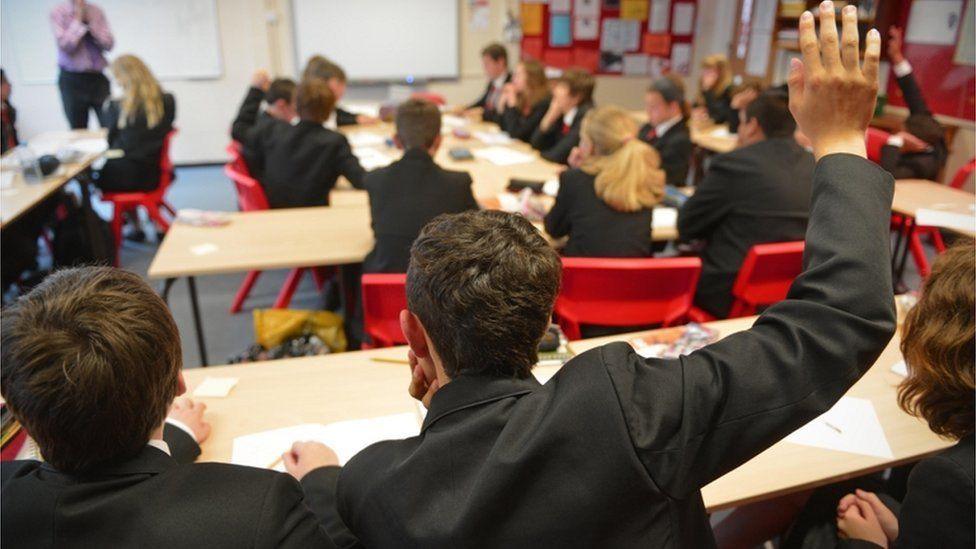Cornish primary school cuts food waste by 85%
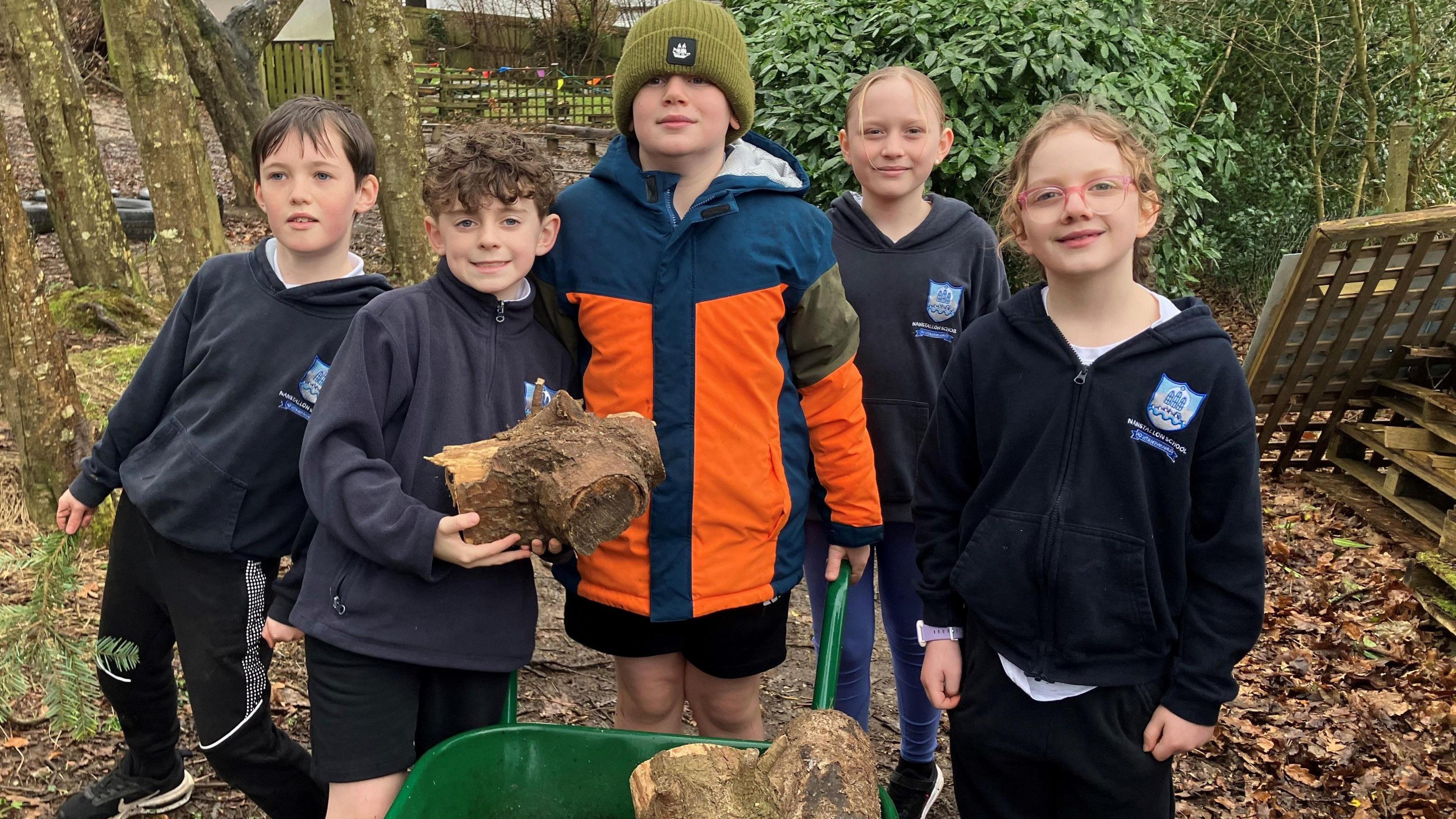
Members of the Eco-Club at Nanstallon Community Primary School
- Published
Children at Nanstallon Community Primary School near Bodmin have been taking action to reduce food waste at lunchtime by being more careful with servings.
It is one of a series of measures at the primary which have led to its recognition as an Eco-School, which cares for the environment.
More than 40 schools in Cornwall have achieved the status where children decide how they want to become greener and take action on climate change.
Ben Stephenson, the headteacher, said "The biggest thing for us was we had a lot of food-waste at lunchtime and we were measuring between 1.5kg to 3kg of waste and over a month we reduced that by 85%."
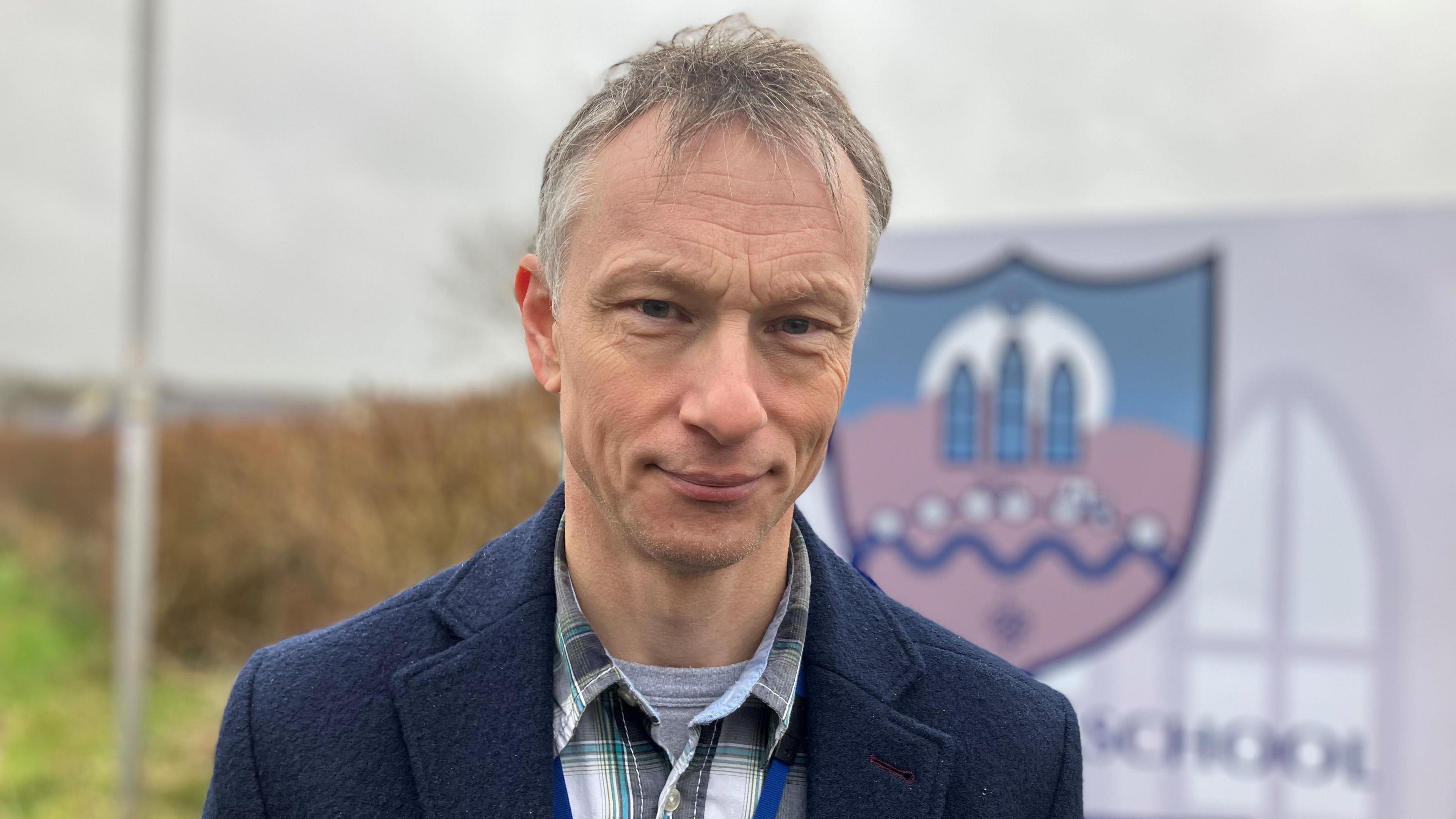
Ben Stephenson, the headteacher at Nanstallon, said because the pupils take ownership of their green projects it becomes meaningful to them
The Eco-School programme is part of the Keep Britain Tidy organisation.
Cornwall Council is working with the charity and schools climate campaign Let's Go Zero to help support eco-education and Eco-Clubs.
All schools are required by the government to have a Climate Action Plan by the end of the year 2025.
Mr Stephenson said: "We set up a number of activities for the children that were tangible and sustainable like collecting the school's compost each day.
"We've got children who collect the recycling, they're feeding the birds, they're making their own fat balls."
He added the children were pro-actively leading the project to reduce food waste at lunchtime and they now averaged 300g saved over the week.
"There are some days where we have zero waste and they're pretty incredible like that," he said.
Children 'take ownership'
Pupil Isabella said "At school on Friday we produced zero waste because we weren't talking as much as we usually do and we were concentrating.
"We all got stickers from Mr Stephenson and they're rarely given out," she said.
Archie, one of the school's Eco-Club members, said: "I like making bird feeders, bird food and also making our bug hotels and also planting the trees that we planted."
Charlie, another Eco-Club member, said: "In the summer we go to forest school, you get to do fun stuff like making bug hotels and fat balls."
Mr Stephenson said: "Because it's tangible, because it's something they do and can take ownership of it's meaningful for them, the same as planting new trees on the school site and being able to collect blackberries and apples and take them to chef to put in the crumble.
"It's all of those things that bring them closer to their own environment, appreciating the bounty from that and how to look after it," he said.
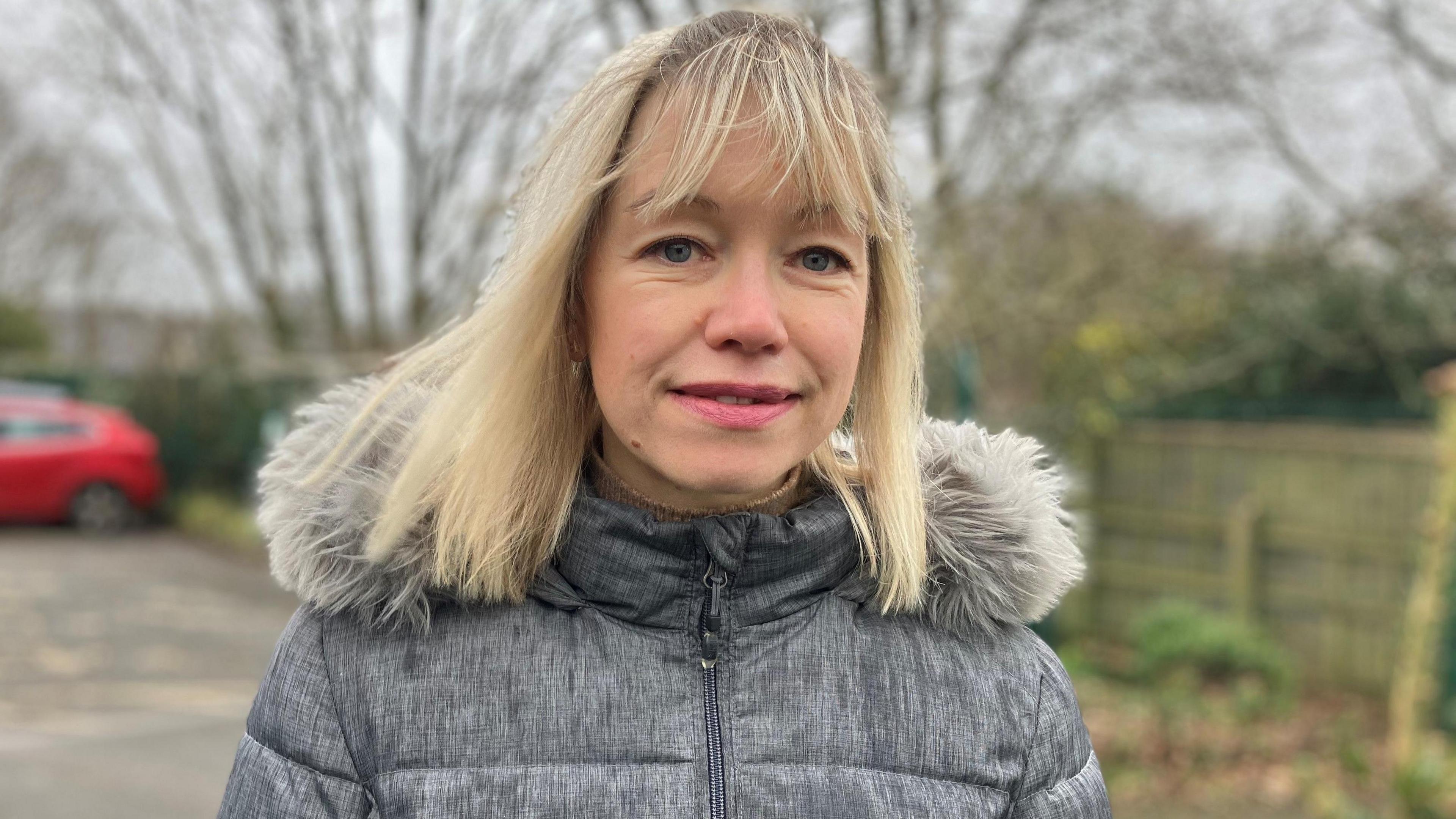
Charlotte Clarke from Cornwall Council said Nanstallon Primary did an "overwhelming" amount of work to gain the distinction
Charlotte Clarke is Cornwall Council's Eco-education project manager and runs Nanstallon Community Primary's Eco-Club.
"I think it's important to teach children at a young age about climate change so they make sustainable choices and at the end of the day they are our future," she said.
"Hopefully they will go on to choose green careers and help us to save the planet," she added.
Follow BBC Cornwall on X (formerly Twitter), external, Facebook, external and Instagram, external. Send your story ideas to spotlight@bbc.co.uk, external.
- Published10 October 2024
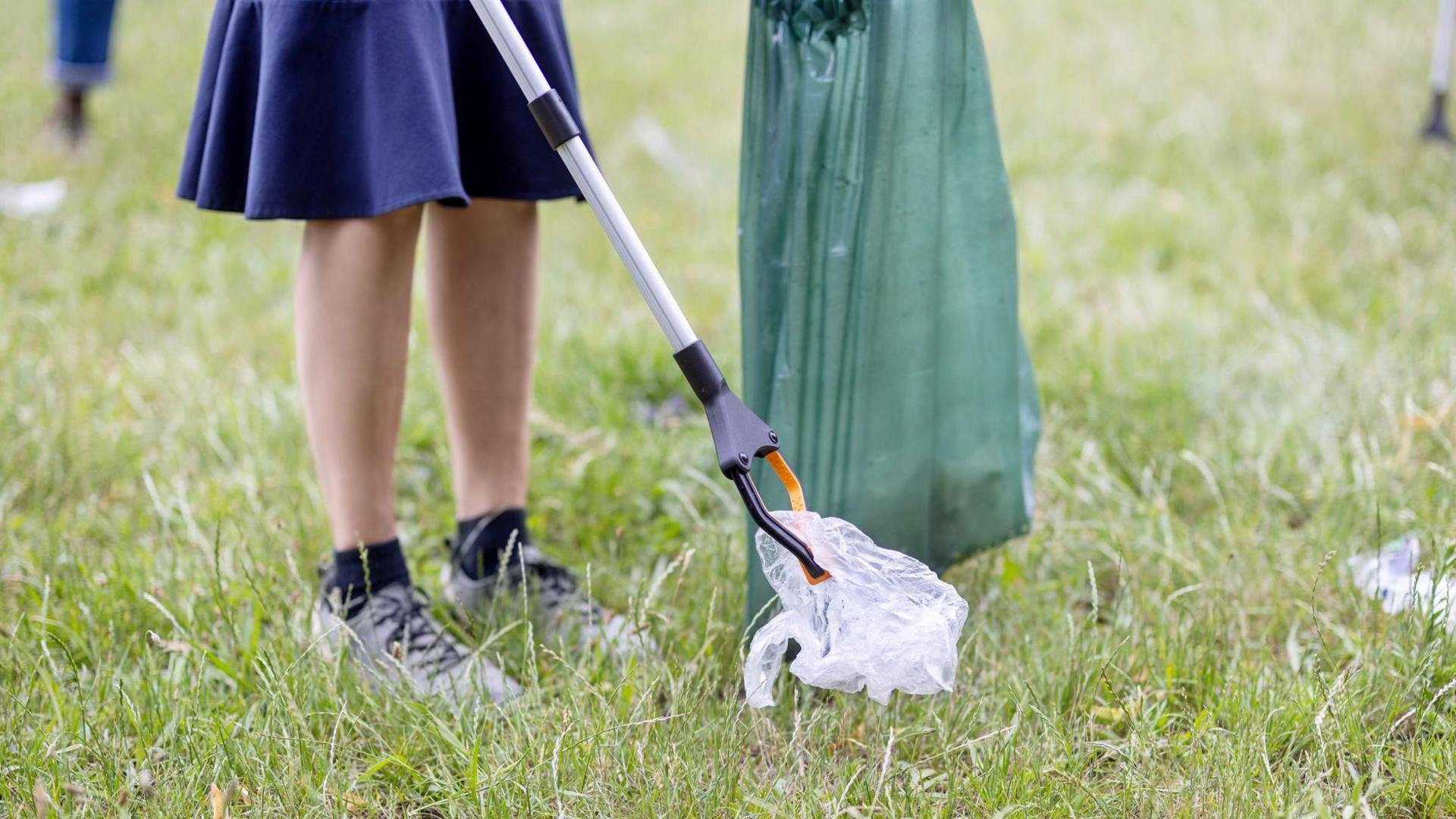
- Published18 April 2024
